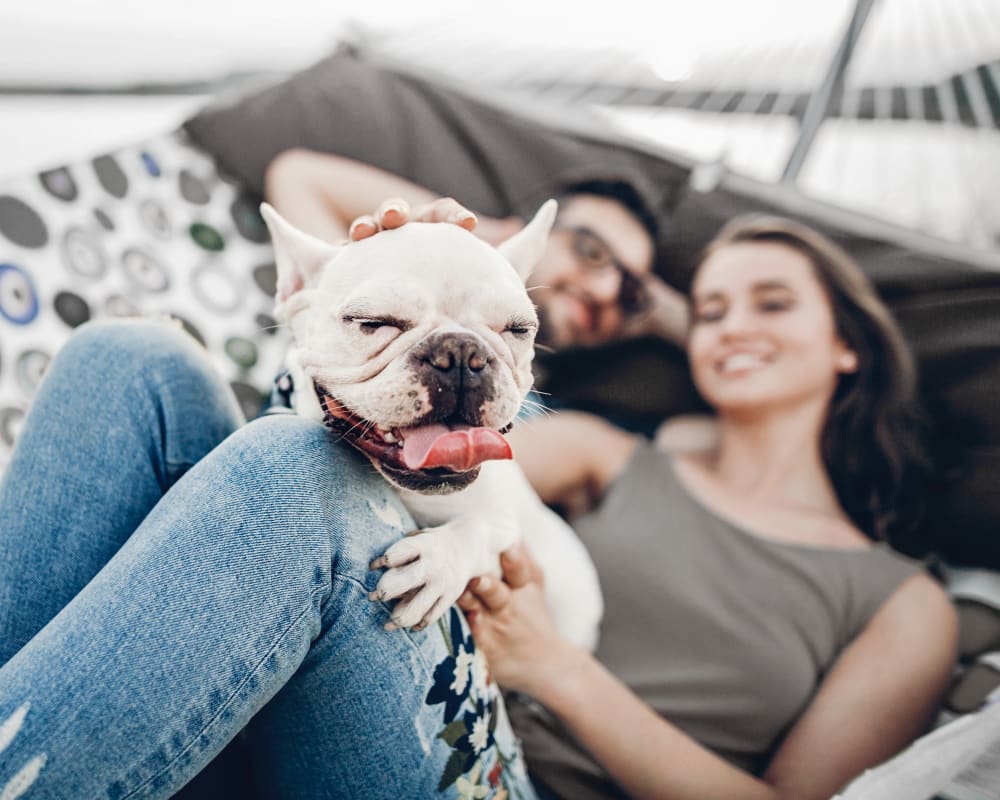Spaying & Neutering
Getting Your Pet Spayed or Neutered
Spaying and neutering are common surgeries used to remove your cat or dog's reproductive organs, rendering them unable to reproduce. These preventive care procedures should be considered by every responsible pet owner.
While all surgeries performed under general anesthesia come with risks, these common reproductive surgeries are considered to be safe for most dogs and cats.
Our veterinarians perform these procedures on a regular basis and feel that they help pets to live healthier, more contented lives while also helping to reduce the population of unwanted dogs and cats in animal shelters.

Benefits of Microchipping for Cats & Dogs
At Madeira Park Veterinary Hospital, we can place a tiny microchip under your dog or cat's skin as a simple and permanent form of identification.
Microchipping is an efficient means of pet identification that increases the chances of being reunited with your cat or dog if they become lost.
When to Spay or Neuter Your Pet
No one understands your pet's health better than a veterinarian. Although we provide general spay and neuter age guidelines below, it is always best to consult your pet's veterinarian for advice.
Cats: Kittens can be spayed or neutered as young as six to eight weeks of age; however, standard spay and neuter surgeries are most often performed when the kitten is between five and six months old. That said, a healthy adult cat of any age can also be spayed or neutered.
Dogs: Traditionally, puppies have been spayed or neutered at around six months old. However, some vets have concluded that it is better to wait until the dog has reached sexual maturity before performing these reproductive surgeries.
Spaying & Neutering FAQs
For answers to more of your questions about spay and neuter procedures please read through the answers to these frequently asked questions from our clients.
-
How long will it take for my pet to recover from surgery?
Spay and neuter procedures are typically day surgeries, allowing pets to return home in the evening following their procedure.
Your pet's activity will need to be restricted for approximately 10 days, and a protective suit along with a collar may need to be worn to prevent them from licking the incision.
Your vet may also request that you bring your pet in for a follow-up appointment.
-
What are the benefits to getting my pet spayed or neutered?
Neutering is a surgical procedure where the testicles are removed from male pets, preventing them from fathering litters of kittens or puppies.
Cats: Neutering your cat can help to curb undesirable behaviours such as spraying, roaming and aggression towards other cats.
Dogs: Neutering your dog may help to reduce animal aggression, 'humping' and attempts at escaping.
Spaying involves removing a female pet's reproductive organs. This surgery prevents your pet from becoming pregnant.
Cats: Spaying your cat may help prevent your kitty from escaping your home, roaming, yowling and urinating inappropriately.
Dogs: Having your female dog spayed ends their heat cycle and helps prevent pyometra (womb infection) and mammary tumours.
-
Will my pet feel anything during the procedure?
No, your pet will be under general anesthesia, and will not feel anything during the procedure.
-
Will my pet gain weight after the procedure?
Your puppy or kitten will continue to grow to their full adult weight after the spay or neuter procedure, and this naturally includes some weight gain.
However, your pet will not gain weight as a result of being spayed or neutered.
-
How much will it cost to get my pet fixed?
The cost of your pet's spay or neuter surgery depends on a wide variety of factors including the size of your dog or cat and overall state of health, as well as where you live in the country. To get an accurate estimate of the cost of your pet's reproductive surgery contact our Madeira Park Veterinary Hospital today.
-
Will my pet need to stay in the hospital overnight?
While in some rare cases, it may be necessary to keep a pet overnight following spay and neuter surgeries, at Madeira Park Veterinary Hospital these procedures are typically day surgeries. This means that you will drop your dog or cat off to us in the morning at a pre-arranged time and then pick them up once our veterinarians have decided that your pet is sufficiently recovered and ready to head home.
When you come to our animal hospital to pick up your pet following surgery, we will provide you with detailed instructions for at-home care.
